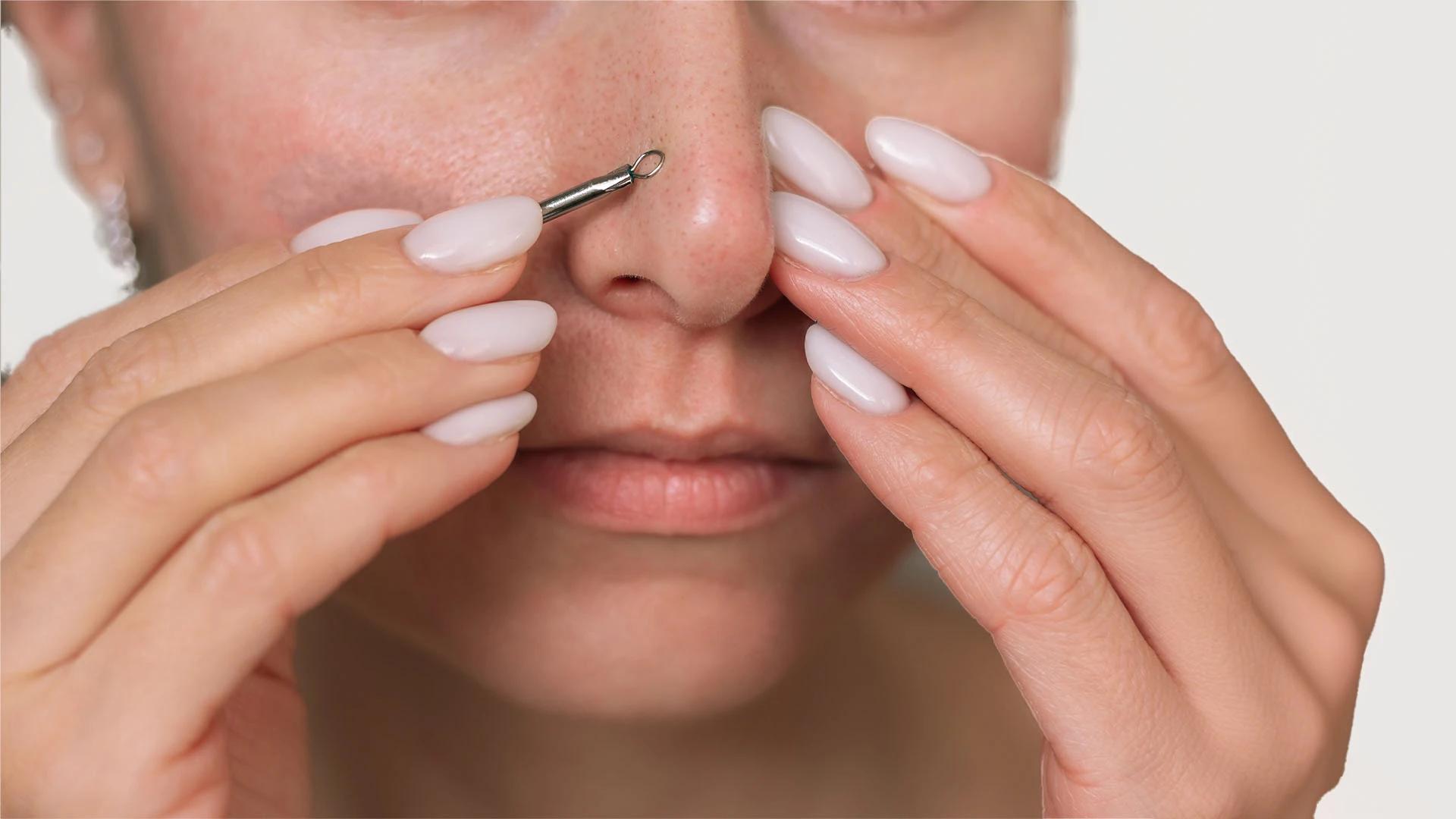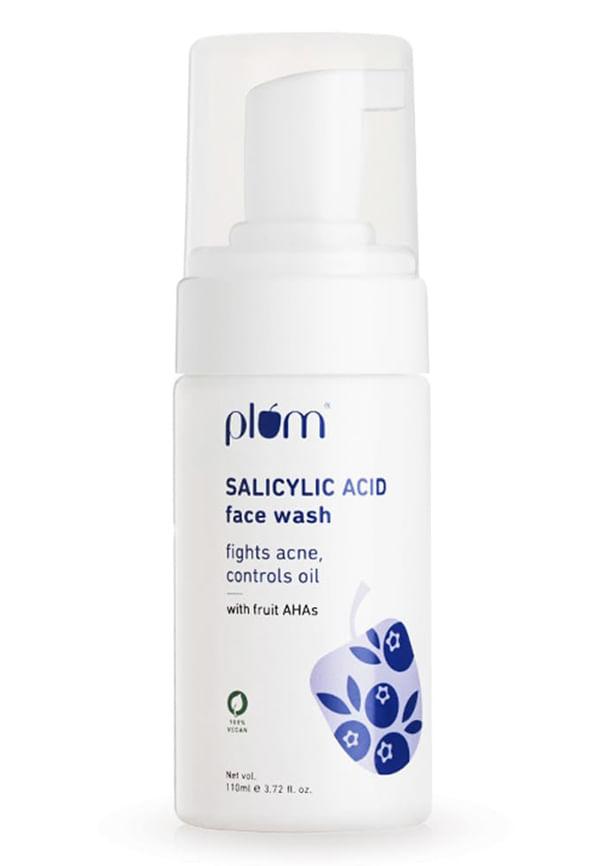7 Proven Tips to Banish Whiteheads on Nose for Good


Those tiny white bumps dotting your nose aren't just a random skincare annoyance—they're whiteheads, and they're surprisingly common. Unlike their darker cousins (blackheads), whiteheads on nose stay stubbornly closed under the skin, making them trickier to tackle. But here's the thing: with the right approach, you can actually banish them for good. Whether you're dealing with occasional pop-ups or a persistent cluster, these seven proven tips will help you achieve that smooth, clear nose you've been dreaming of. Ready to dive into some real whitehead solutions?
Before we jump into solutions, let's get real about what's happening on your nose. Whiteheads on nose form when your pores get clogged with a cocktail of dead skin cells, oil, and bacteria—but unlike blackheads, they stay closed at the surface, creating those characteristic white or flesh-coloured bumps.
Your nose is basically a whitehead magnet because it's part of your T-zone, where oil production runs wild. Here's what triggers them:
Excess sebum production: Your nose has more oil glands than other facial areas
Dead skin buildup: When cells don't shed properly, they create the perfect clogging storm
Hormonal fluctuations: Those monthly changes can send oil production into overdrive
Heavy skincare products: Comedogenic ingredients love to camp out in your pores
Genetics: Sometimes your DNA just predisposes you to more whiteheads
Environmental factors: Pollution and humidity can make matters worse
 100 ml
100 mlSalicylic Acid Face Wash
Let's start with the basics—but make them brilliant. The right cleansing routine is your first line of defence against whiteheads on face, especially around the nose area. This isn't about scrubbing harder; it's about being smarter.
Look for gentle, non-comedogenic cleansers with salicylic acid or benzoyl peroxide. These ingredients help dissolve the gunk that leads to whiteheads without over-drying your skin. Cleanse twice daily—once in the morning and once before bed—but don't go overboard. Over-cleansing can actually trigger more oil production.
Use lukewarm water and gentle circular motions around your nose area. Spend about 30 seconds massaging the cleanser in, then rinse thoroughly. Pat dry with a clean towel—never rub, as this can irritate the delicate skin around your nose.
 150 ml
150 mlSalicylic Acid Daily Gentle Cleanser
Regular exfoliation is crucial for whiteheads prevention because it helps remove dead skin cells before they can clog your pores. But here's where many people go wrong—they think harsher equals better.
Chemical exfoliants (like BHA or AHA) are generally gentler and more effective for whiteheads than physical scrubs. Salicylic acid is particularly brilliant for nose area because it's oil-soluble and can penetrate deeper into pores.
Start with 2-3 times per week and adjust based on how your skin responds. Apply your exfoliant to clean, dry skin and follow with moisturiser. Always use sunscreen the next day, as exfoliation can increase sun sensitivity.
 100 ml
100 ml2% Salicylic Acid Face Wash
This tip might seem obvious, but you'd be surprised how many people unknowingly sabotage their whiteheads treatment efforts with pore-clogging products. Every single product that touches your face should be non-comedogenic and oil-free.
Avoid coconut oil, cocoa butter, and heavy silicones around your nose area. Instead, look for lightweight, gel-based moisturisers and serums. Water-based products are typically your best bet for preventing new whiteheads from forming.
When exploring new skincare products, platforms like Smytten offer curated trial packs from trusted brands, allowing you to test products before committing to full sizes—perfect for finding your ideal non-comedogenic routine without the risk of wasting money on products that might worsen your whiteheads.
 100 ml
100 mlSalicylic Acid 2% Face Wash
Now for the heavy hitters—targeted treatments that specifically address whiteheads on skin. These aren't your everyday products; they're the special forces of your skincare routine.
Retinoids (like adapalene) are fantastic for preventing whiteheads by increasing cell turnover. Benzoyl peroxide kills bacteria and helps unclog pores, whilst niacinamide reduces oil production and inflammation. Start with lower concentrations and build up gradually.
Tea tree oil (diluted to 5-10%) has antimicrobial properties that can help with whiteheads causes. Clay masks once or twice weekly can also help absorb excess oil from your nose area. Just remember that natural doesn't always mean gentle—patch test everything first.
 100 ml
100 ml2% Salicylic Acid Face Wash For Oily Skin
Your diet plays a bigger role in blackheads and whiteheads formation than you might think. What you eat can either fuel or fight those stubborn nose bumps.
Load up on omega-3 rich foods like salmon and walnuts, antioxidant-packed berries, and zinc-rich foods like pumpkin seeds. These nutrients help reduce inflammation and support healthy skin cell turnover.
High-glycemic foods and dairy products may worsen whiteheads for some people. Try reducing refined sugars, white bread, and processed foods for a few weeks to see if your nose clears up. Stay hydrated too—dehydrated skin can actually produce more oil to compensate.
 100 ml
100 mlTea Tree Purifying Gel Face Wash With 1% Salicylic Acid & CICA
This might be the hardest tip to follow, but it's crucial for successful whiteheads removal. Every time you touch your nose, you're potentially introducing bacteria and oil that can worsen existing whiteheads or create new ones.
Change your pillowcase every 2-3 days
Clean your phone screen regularly
Wash your hands before applying skincare products
Use clean makeup brushes and sponges
Avoid resting your chin or cheek on your hands
We know it's tempting, but DIY whiteheads extraction at home can lead to scarring, infection, and more whiteheads. If you absolutely must extract, use proper tools, sanitise everything, and only attempt it on very superficial whiteheads.
 100ml
100ml2% Salicylic Acid Gel Face Wash
Sometimes, despite your best efforts with whiteheads on nose tips, you need professional backup. There's no shame in seeking expert help—dermatologists have tools and treatments you simply can't access at home.
Professional extractions are much safer than DIY attempts. Chemical peels can help reset your skin, whilst prescription retinoids are stronger than over-the-counter options. Some dermatologists also offer light therapy or microdermabrasion for stubborn cases.
If your whiteheads aren't responding to consistent home treatment after 6-8 weeks, it's time to see a professional. Also book an appointment if you're experiencing pain, significant inflammation, or if whiteheads are affecting your confidence.
 100 ml
100 ml1% Salicylic Acid Gel Face Wash
Banishing whiteheads isn't just about treatment—it's about creating a sustainable routine that prevents them from returning. Consistency is absolutely key here.
Stick to your routine even when your skin looks good. Many people abandon their skincare routine once they see improvements, only to have whiteheads return with a vengeance. Your nose needs ongoing attention to stay clear.
Your skin changes with seasons, hormones, and age. What works now might need tweaking later. Pay attention to how your skin responds and adjust your routine accordingly. This is where having access to various trial-sized products becomes invaluable—you can test new formulations without committing to full sizes.
 110 ml
110 mlSalicylic Acid Foaming | With Encapsulated Salicylic Acid & Fruit AHAs Face Wash
Consistent cleansing with salicylic acid, regular exfoliation, and using non-comedogenic products are key. Avoid touching your nose and maintain good hygiene habits like changing pillowcases regularly.
Combine a gentle cleansing routine with targeted treatments like retinoids or benzoyl peroxide. Professional extractions may be needed for stubborn whiteheads, but avoid DIY extraction at home.
Your nose is in the T-zone where oil production is highest. Hormones, genetics, comedogenic products, and touching your face can all contribute to recurring whiteheads in this area.
 100 ml
100 mlAHA BHA & Kojic Acid Face Wash
Use chemical exfoliants like salicylic acid, maintain a consistent skincare routine with non-comedogenic products, and consider professional treatments if home remedies aren't working after 6-8 weeks.
Yes, whiteheads are closed comedones that appear white or flesh-coloured, whilst blackheads are open comedones that appear dark due to oxidation. Both are types of acne but require slightly different treatment approaches.
Banishing whiteheads on your nose isn't about finding one miracle product—it's about combining the right techniques, products, and habits consistently over time. From proper cleansing and targeted treatments to professional help when needed, these seven proven tips give you a comprehensive approach to achieving that smooth, clear nose you're after.
Remember, everyone's skin is different, so what works for your friend might not be your perfect solution. This is where exploring different products safely becomes crucial. With over 1,500 trusted skincare brands offering trial-sized options, you can discover your ideal whitehead-fighting routine without the guesswork or financial risk. After all, why settle for maybe when you can try it all and find what truly works for your unique skin?